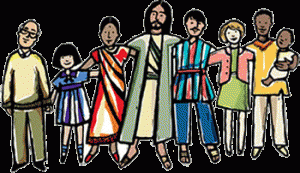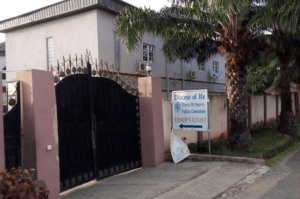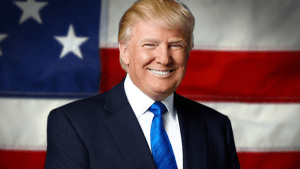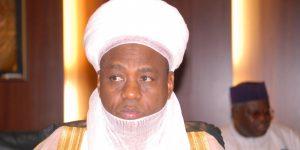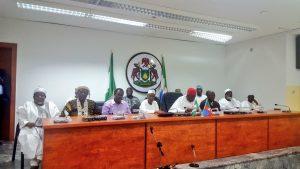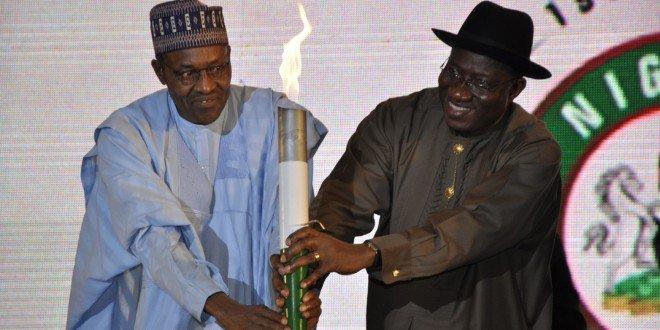
President Jonathan and General Buhari
Fundamentally, nothing has changed about General Buhari to account for his new popularity. The people’s General, as he is now wont to be called, remains his ascetic, stubborn, and uncompromising self. It is a miracle of sorts that the General, whose removal from office by General Babangida in August 1985 elicited tumultuous rejoicing across the land, and who has consistently lost at the ballot three consecutive times, is now the new political messiah whose election in the primaries is creating so much excitement in the same country.
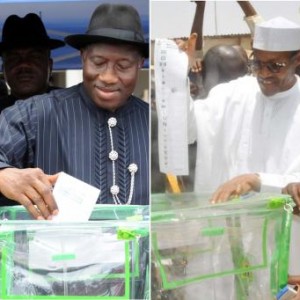
If politicians, many of whom were jailed for near infinite terms during Buhari’s first coming are now willing to work with him, in spite of the enormous risk to their source of income (and possibly, freedom ); if deacons and pastors are now championing his cause, in spite of his erstwhile published avowal to further a nationwide adoption of Shari’a; if Southerners are now rooting for him, even though he was quick to journey down to Shaki to protect the interest of marauding herdsmen against local farmers as well as call a war against Boko Haram a war against northerners; if journalists are now championing his cause, not minding the fact that his earlier regime promulgated the infamous Decree 4 that saw some of their notable members to jail, the General has only one person to thank for this apotheosis, and that is President Goodluck Jonathan!
Admittedly, the General has in recent times toned down considerably on the jarring edges of his persona. While previously he was in the fore front of calls to halt millitary action against Boko Haram, his blistering attack on the sect earlier this year attracted a near successful attempt on his life by the members of this sect. He has been very quiet lately on Shari’a expansionism and actually took fiery pentecostal pastor, Tunde Bakare, as his running mate in the last election. To showcase a more democratic disposition, the General re-affirmed to his party’s screening committee that though he saw nothing wrong in a muslim-muslim ticket, he would defer to the party’s decision in his choice of a running mate. Definitely, the General has come a long way.
However, the refinements noticed in the Generals persona are not enough to explain what we see now. So many previous political office holders have tried in vain to convince Nigerians that they are now ‘born-again’. The tome upon tome been churned out of the hilltop library has not done much to redeem the image of ex-president Obasanjo. Of all the politicians who joined Abacha in his repressive regime, how many have been able to reclaim their erstwhile followership? Not even the tremendously popular Lateef Jakande recovered. Yet who remembers today that General Buhari was not just a prominent player in that regime, but came back to defend the unpopular position that General Abacha was not corrupt? The greatest reasons Nigerians are not only willing to forgive the General’s erstwhile shortcomings but also chorus “Sai Baba” in frenzy is because he presents such a glaring contrast to the incumbent.
President Jonathan, while trumpeting his transformational agenda achievements such as road construction, railroad resuscitation and privatization of NEPA, failed to discern that Nigerians are no longer clapping simply because roads are reconstructed, but are now more interested in unraveling why indeed the roads have remained in a poor state in spite of huge budgetary allocations. Put squarely, the two most critical expectations of Nigerians from their Government today is to combat insecurity, and crush corruption. In these two critical areas, President Jonathan’s public perception index has not been too flattering, and for too long, he also appeared not to have given a damn!
The war on corruption, which the President and his media men affirm is on course, is anything but alive in the eyes of most Nigerians. For long, people murmured about the body language of the president, yet the tone at the top refused to give any coherent tune that it is abominable to steal the people’s commonwealth. Scandals broke upon scandal, investigations mounted upon investigation, but nothing seemed to change, the anti-corruption war did not capture any notable prisoners, and indeed opened the door for quite a few.
The war on terror has dragged on and on, to the point that the President now has difficulties getting legislative approval for his State of Emergency. The consensus of observers is that the State of Emergency is not effective. Bungling the war on terror has grossly amplified the adjective, ‘incompetent’, which is now one of the most gentle verbal assaults routinely hauled at the president.
In contrast, General Buhari comes across as a no-nonsense person who is most suited to tackle these twin evils oppressing the nation at the moment. He has loads of endorsements from notable citizens on his widely acclaimed integrity. He jailed corrupt politicians using military tribunals. And yes, he has no house in Abuja and has no oil license even as a former Petroleum Minister and former Head of State. In him, the people see a huge possibility that insurgency and corruption will be conquered.
Can Jonathan survive this massive loss of goodwill? The time is short, and it will not be by throwing verbal darts at the opposition. There is still a window of opportunity in the war against insurgency. Can the president manage to have a victory tour in an insurgent-free North East in January? Is there anything concrete that can still be achieved in the anti-corruption war before the elections? If the president cannot remove the platform he has willingly given the opposition through inaction by loudly perceptible results in these areas quickly, the journey will be long, rough and tough.
Contributed by Victor Omojola follow on Twitter @vomojola

